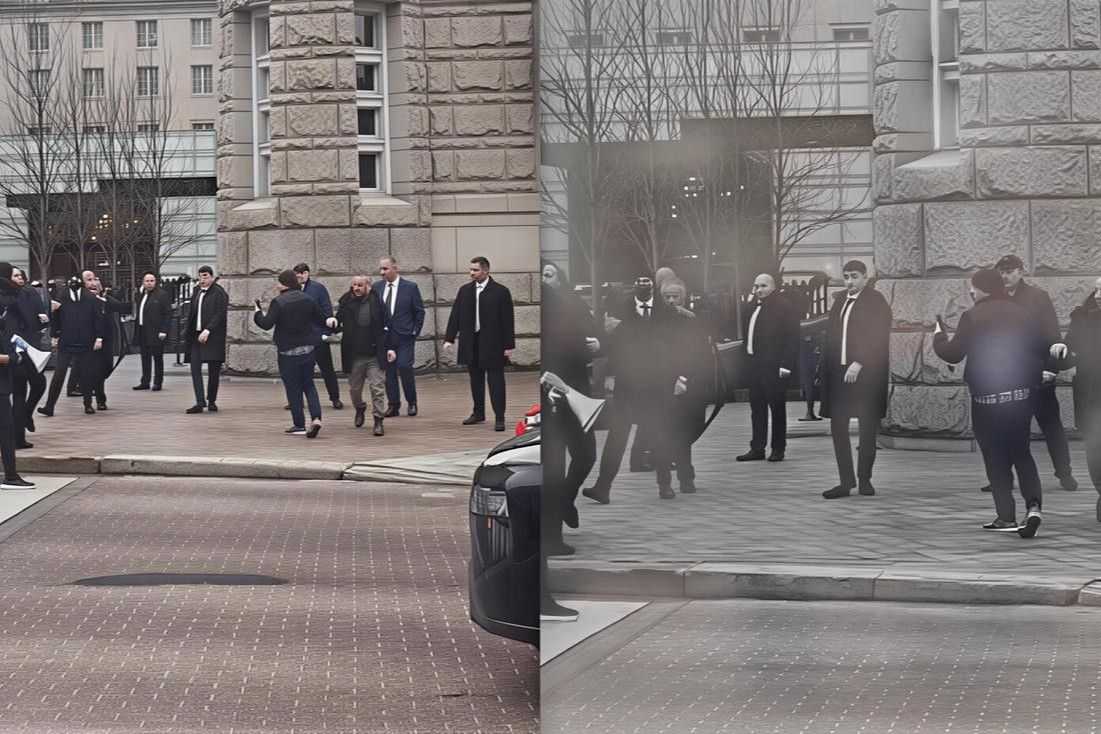
The death of 18-year-old Azerbaijani student Elgun Ibrahimov after being found severely injured in Ganja has sparked outcry in Azerbaijan, with many criticising the authorities for their handling of the case.
On 17 May, around five days after the incident, Azerbaijan’s Prosecutor General’s Office and Interior Ministry shared a joint statement which was scant on details — the main message was that ‘necessary and urgent investigative and operational-search measures are being carried out in this case’.
The statement also noted that ‘some social media users have posted information about the details of the incident that has not been verified by the investigative body’.
After the statement was shared, footage of Ibrahimov being found badly injured in an abandoned dormitory of Azerbaijan Technological University, which had until recently reportedly housed internally displaced persons (IDPs), spread on social media. The footage showed his face and body covered with blood.
Ibrahimov was subsequently taken to hospital where he died several hours later.
Ibrahimov’s uncle, Rovshan Zeynalov, told the pro-government media outlet Oxu.az that Ibrahimov had been attending a university preparatory class, and that the incident probably occurred after he left the class.
After his death, pro-government media revealed that Ibrahimov had received a high mark in his final school exam.
‘Don’t be silent for Elgun’s sake’
Days after his death, members of the public took to social media and created a campaign on Ibrahimov’s TikTok account, calling for people not to be silent about his death.
The local media outlet Genjaxabar.az reported that a campaign is also being carried out on social media, which more than 40,000 people have joined.
Local celebrities and public figures have also shared stories about Ibrahimov’s death on their Instagram accounts, demanding justice.
The subsequent media pressure seemingly forced the Prosecutor General’s Office and the Interior Ministry to share their joint statement, despite it being a non-working day.
Subsequently, pro-government media outlets began to share the theory that Ibrahimov had a problem with his family, and that he had committed suicide as a result.
Other pro-government media outlets also attacked Ibrahimov’s character, sharing photos from his social media accounts, including a photo showing Ibrahimov with a glass of beer, insinuating that he had a problem with alcohol.
Following this, on Monday, Ibrahimov’s mother, Fizza Zeynalova, gave an interview to another pro-government media outlet Telegraph. While the article was deleted shortly after, pro-government media outlet Konkret.az published the same article, which is still visible as of publication.
In the interview, Zeynalova claimed that allegations her son had committed suicide were ‘groundless’.
‘The day before the incident, he was preparing for the last bell, getting ready to go dancing. If he had any problems, he would have shared them with me. You probably saw the footage that was distributed. He was beaten to death’, Zeynalova told Telegraph.
Sabir Musayev, a representative for the Prosecutor General’s Office, announced on Tuesday that an investigation into the case had started.
‘The body of the deceased was subjected to external and internal examination. Certain samples were taken from the body of the deceased, including from the crime scene. Based on these samples, numerous examinations were ordered and sent to the relevant authorities’, Musayev said.
He additionally noted that individual photos were taken from surveillance cameras installed near the scene where Ibrahimov was found.
‘If someone has a well-founded version, he can, without hesitation, contact the prosecutor’s office and present this version and the documents, evidence and proof on which it is based’, Musayev said, without stating what the authorities believed was the cause of death.
Prior to this statement, Azerbaijan’s Interior Ministry and the Prosecutor General’s Office called on the public not to disseminate ‘unfounded and unverified information’, saying that ‘this not only undermines the provision of objective and reliable information to the public but also causes artificial excitement among the public’.











